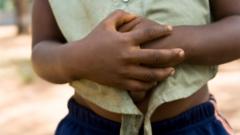Lahore, Pakistan's second-largest city, has declared a one-week closure of primary schools as it grapples with alarming air pollution levels exceeding hazardous thresholds. Officials cite environmental impacts, with significant public health repercussions for its residents.
Lahore's Schools Shut Down Amid Record-Smog Crisis

Lahore's Schools Shut Down Amid Record-Smog Crisis
The city of Lahore suspends primary school classes for a week due to extreme air pollution, prompting concerns over public health and environmental accountability.
Classes in Lahore, Pakistan, have been suspended for a week in primary schools due to severe air pollution, which reached dangerously high levels over the weekend. On Sunday, Lahore’s Air Quality Index peaked above 1,000, according to IQAir, a Switzerland-based air quality monitoring group, categorizing the air as hazardous. Authorities in Punjab province, which includes Lahore, announced the cancellation of classes for students up to grade five, while higher grades remain unaffected by the decision.
Expert assessments noted that the extreme levels of PM2.5, a pollutant particularly harmful to health, were nearly 30 times higher than World Health Organization recommendations for safe air quality. Environmental lawyer Ahmad Rafay Alam, a member of the Pakistan Climate Change Council, described the situation as unprecedented, stating the pollution levels were "outside the range of classification" and termed it an environmental "apocalypse."
According to reports, Lahore recently ranked as the second-most-polluted city globally, trailing only behind New Delhi, India. Historical data indicates that Pakistan consistently finds itself among the nations with the worst air quality, contributing to an average life expectancy reduction of two years for its urban residents, as highlighted by Alam. The current crisis not only raises immediate concerns for students and community health but also stresses the need for a robust response to the ongoing environmental challenges facing the region.




















